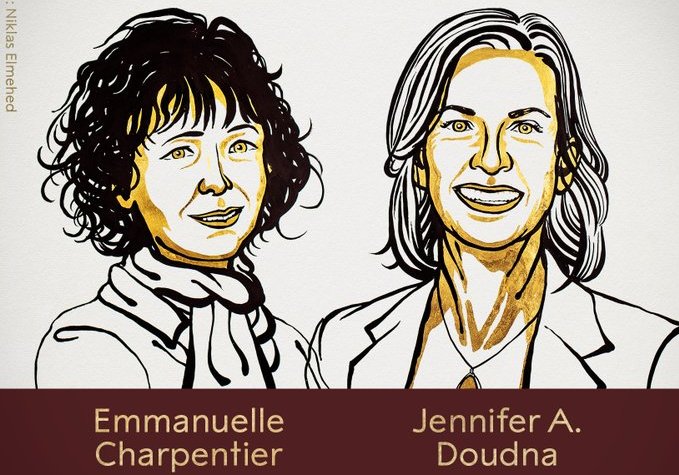
Chemistry Nobel awarded to Emmanuelle Charpentier, Jennifer A Doudna
The 2020 Nobel Prize for chemistry has been awarded to Emmanuelle Charpentier and Jennifer A Doudna for the discovery of one of genetic technology’s sharpest tools: the CRISPR/Cas9 genetic scissors.

The 2020 Nobel Prize for chemistry has been awarded to Emmanuelle Charpentier and Jennifer A Doudna for the discovery of one of genetic technology’s sharpest tools: the CRISPR/Cas9 genetic scissors.
The ‘CRISPR/Cas9’ genetic scissors recognise DNA from viruses in their natural form. However, Charpentier and Doudna proved that they could be controlled so that they can cut any DNA molecule at a predetermined site.
When #NobelPrize laureates Emmanuelle Charpentier and Jennifer Doudna investigated the immune system of a Streptococcus bacterium they discovered a molecular tool that can be used to make precise incisions in genetic material, making it possible to easily change the code of life. pic.twitter.com/LU0JEYqLNW
— The Nobel Prize (@NobelPrize) October 7, 2020
Emmanuelle Charpentier, born in 1968 in Juvisy-sur-Orge, France, is Director of the Max Planck Unit for the Science of Pathogens in Berlin, Germany.
Jennifer A. Doudna, born in 1964 in Washington D.C., USA, is a Professor at University of California, Berkeley and an investigator at HHMI News.
The Chemistry Nobel has frequently honoured work which led to practical applications in wide use today such as last years win for the brains behind the lithium-ion battery.
The prestigious award comes with a gold medal and prize money of 10 million krona (more than $1.1 million), courtesy of a bequest left more than a century ago by the prizes creator, Swedish inventor Alfred Nobel. The amount was increased recently to adjust for inflation.
On Monday, the Nobel Committee awarded the prize for physiology and medicine to Americans Harvey J. Alter and Charles M. Rice and British-born scientist Michael Houghton for discovering the liver-ravaging hepatitis C virus.
Tuesday’s prize for physics went to Roger Penrose of Britain, Reinhard Genzel of Germany and Andrea Ghez of the United States for their breakthroughs in understanding the mysteries of cosmic black holes. The other prizes are for outstanding work in the fields of literature, peace and economics.

